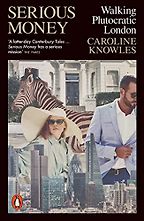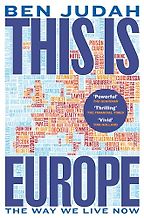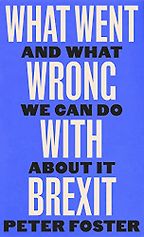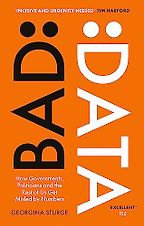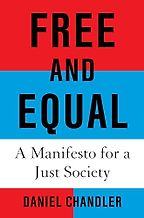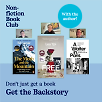You left your job at The Economist to open Backstory, an independent bookshop in Balham, London. Much of our understanding of election cycles comes, necessarily, from short-form articles. How can nonfiction books help us understand British politics in 2024?
In the UK, our election campaigns are very short. Six or seven weeks vs. a couple of years in the United States. This means that our election coverage is very focused on personality and on polling.
I’ve noticed that this year, in particular, there are an awful lot of stories are based on projected results: what this or that would mean on a seat-by-seat basis. Which is obviously very fun for Westminster politicos, and I guess also makes easy copy for filling newspapers and airtime. But it does mean you don’t often get to the substance. Policy, in particular, is overlooked during UK election campaigns.
The great thing about books is that you have the space to really get into the ideas and explore them at length. And, also, to trust the reader a little bit more. I sometimes worry that our political journalism doesn’t trust readers or viewers very much. It’s forever trying to simplify things, to condense things into sound bites, to distil complicated things that resist easy yes or no answers. In the election debates, the party leaders are given 30 seconds each to respond to questions like ‘How would you solve climate change?’ I think this contributes towards political frustration, in a way.
The books I’ve picked out are a real mix of ones that are concerned with quite specific areas of policy and those which offer a much broader understanding of our society, where we are now, and where we might want to get to. Overall, hopefully, they will form a kind of primer to the political backdrop and to where a government could take us in the next five years. And certainly they offer more enlightened reading than the various party’s manifestos.
Yes, this is an excellently varied selection. Can we start by having a look at Caroline Knowles’s Serious Money: Walking Plutocratic London. What an interesting concept for a book.
(This book is also available on the Bookstory website here.)
Yes. One of the genres of nonfiction I like the most is where you get a serious wonk, if you like, a really proper academic, who nonetheless writes a brilliant narrative. And Caroline Knowles is a great example of that. She’s a professor of sociology at Queen Mary University of London and has written all kinds of papers on this topic. But Serious Money is her attempt to distil some of that academic sociology into something way more readable.
It’s fun. I think it’s a good insight into Britain at the moment—some of the political forces in the current debate. But even just taking it on its own merits, this as a book is a great read. It’s set out as a sort of glossary of the modern rich: who they are, how they made their money, and how they spend it. It’s fascinating.
“I worry that our political journalism doesn’t trust readers or viewers very much”
It’s often taken for granted that class and money are big forces in British politics and society. But here Knowles digs deeper into how that’s changed over the years. The aristocracy make some brief appearances: there’s a little bit on Mayfair, and the influence of the Duke of Westminster and his enormous property holdings in the capital. But there’s a lot more space devoted to modern money: the hedge funds, the art collectors, and in particular the influence of foreign money—areas of the capital that have been dominated by Russians and Saudi Arabians, where money and property has been snapped up by the enormously wealthy, the geographically disconnected.
It’s a great insight into inequality, which is one of the big themes at the moment in politics; Rishi Sunak was challenged as to whether the average person felt better off than they did in 2010, when the Tories first came to power.
The opposite, surely.
There’s a real sense that the ultra-rich have gotten rich and richer and the average person doesn’t feel all that better off. This book is a way of looking at: Who are these people who have benefited from the way our society is currently set up? And how do they go about benefiting from it?
Your next two book recommendations direct our attention to the continent. Shall we look first at This is Europe by Ben Judah? It’s his 2023 follow up to This is London (2016), which made waves. I suppose it offers a sense of the UK in its wider context?
(This book is also available on the Bookstory website here.)
Exactly. I think Ben Judah is himself interesting. He’s now an advisor to David Lammy, who is likely to play a big role in what is almost certainly going to be the incoming Labour government. This book was written when he was still a full-time journalist.
What Ben Judah does brilliantly—and this is as true of This is Europe as it was of This is London—is blending the micro with the very macro. He uses the stories of ordinary people, the people who aren’t written about much, or who certainly aren’t considered appropriate material for long-form profiles by political journalists—cleaners and Uber drivers, you know, the backbone of the economy—as lenses through which to analyse the sweeping trends of our time.
In this book, we see political polarisation, migration, globalisation, the drift to the right—all these trends, seen through the stories of ordinary European citizens. We meet the migrant porn star; we meet a pilot at one of Europe’s super terminals, helping to navigate boats into port, a real insight into globalisation. You realise how many people are involved in what feel like intangible forces. Judah zooms in, and we see how these forces are made up of hundreds of thousands of people. It’s a great book.
Right. His methods are interesting. Quite Orwellian—in the literary sense, not the dystopian. I remember reading about him hanging around in illegal labour exchanges with newly arrived immigrants and sleeping in doss houses.
Exactly. He’s very consciously taking an approach totally at odds with the approach that most Western journalists take. Rather than talking to a bunch of men in Westminster with different opinions, he goes to find someone whose life is shaped by those forces. I think it’s a really refreshing way of doing it.
The next book you recommend to those who want to better understand British politics in 2024 is Peter Foster’s What Went Wrong with Brexit. Brexit has come and gone, but it still feels ever present in British political discourse.
(This book is also available on the Bookstory website here.)
It’s weird. Brexit is very much an elephant in the room. None of the politicians want to talk about it, for different reasons, yet it is the single biggest political change in many of our lifetimes and certainly one that has had great influence over a lot of the forces at play—the sluggish economic growth, the polarisation of our political discourse… The Brexit referendum has a lot to answer for.
Peter Foster’s book is almost a kind of antidote to Ben Judah’s. Where Judah’s is all about ordinary people, fascinating characters, Peter Foster has produced a kind of ultimate insider’s guide to how Brexit worked, how it has gone wrong, and—in some ways—why it was always destined to go wrong.
He lived and breathed Brexit, as Europe editor of the Telegraph in the immediate aftermath of the referendum; he had the unenviable daily task of explaining to people who voted for Brexit why it was working out so disastrously. Then for the last few years he has been public policy editor at the Financial Times. So he’s an incredibly well connected journalist and he’s written a primer on Brexit and what it’s consequences have been on both the macro level and the micro, on the difficulties faced by small businesses.
What makes it so interesting to read right now is that we are, most likely, about to have a new government in Britain with a large majority, which could make bold decisions, but which so far has not necessarily promised all that much in the way of radical change. One of the ways it could do that is by realigning with the European Union to some extinct. Peter Foster spells out ways in which that could work, short of rejoining the EU. Ways in which Brexit could be made to work better, if you like.
This is definitely interesting reading for everyone, but required reading for Keir Starmer and his foreign secretary as they try to make the best of a bad hand that’s been dealt to them.
I think the next book should also be a must-read for all policymakers. This is Georgina Sturge’s Bad Data. She’s a statistician at the House of Commons. What does it tell us about British politics in the run up to the 2024 general election?
(This book is also available on the Bookstory website here.)
Yes, it should be required reading not only for politicians but also for members of the media, because so much of our political coverage is dominated by data—in particular, headline claims. Think of Rishi Sunak’s claim in that first debate: that Labour was going to cost every household £2000 more per year. That was quite quickly debunked, and he was warned by the Treasury not to use that calculation again. But you got the sense of damage having been done.
Of course, that reminds me of that £350 million ‘saving’ that would fund NHS improvements that played a role in the Brexit campaign. In migration, every three months new migration statistics are released and the headline numbers will appear, often without much in the way of analysis.
What Sturge does is dig a bit deeper into what the sources of statistics are and gives us some quite remarkable of abuses.
She points to a Home Office algorithm which refused visas partly on the basis of how often applicants from the same country had been refused visas. A racist feedback loop.
It’s a timely reminder to everyone in politics of the big role data plays in today’s political debates, but also how important it is to handle data well.
I think that brings us to your final book recommendation, Free and Equal. In a recent Backstory newsletter, you said: “its author, LSE economist and philosopher Daniel Chandler would be my pick for PM. But in the real world, we can at least suggest the actual next PM, and those around him, read his book.”
(This book is also available on the Bookstory website here.)
This is probably the only work of political philosophy that has got me really fired up. Daniel Chandler spends the first half of this book explaining, in a relatively accessible way, the political philosophy of John Rawls, who he quite convincingly claims is the most significant political philosopher of the 20th century. He’s expanding on and explaining a type of liberalism that is quite alien to the Neoliberalism that has become common around the world and was popularised by Reagan in America.
This is a different sort of political liberalism. Chandler explains, quite brilliantly, why this is the foundation of a fair society and something that, Rawls argued, we would all hypothetically agree to if we were given the chance to do so. But I think what’s more interesting is Chandler takes on this challenge: there’s often a rebuke to philosopher’s that, well, this is all well and good, but how does it relate to the real world? How will this actually work in practice? So, in the second half of this book, he applies his general political principles to modern day politics, and asks: what would a fair society actually look like? In the arena of climate change, for example, or the universal basic income.
You don’t need, necessarily, to come away agreeing with Rawls on everything to think that it is an incredibly bold and interesting book. It’s probably the best example of all the books on this list of treating the reader as a grown-up and allowing us into the tutorial room, if you like, to participate in these fascinating discussions around what a good society is, or what a better society would be.
It fired me up, but it also made me slightly sad that this wasn’t the foundation of our election debates. How much better would it be if we had spent the last six weeks talking about policy and how we could improve society rather than scoring points off each other? For people who want to take a break from that kind of media coverage, this is the ultimate antidote.
That’s a great recommendation, and I think your point about treating readers like intelligent adults will resonate with a lot of Five Books readers. You run regular online meet-ups for people who want to talk about issues explored in nonfiction.
Yes, and we were very lucky to have Daniel Chandler join us for our nonfiction book club recently. One thing I love to do at Backstory is to create space for people to explore the story behind the book, and to raise your questions directly with the author.
We meet monthly on Zoom. The great thing about that is that not only can people can join the discussion from anywhere in the world, but the author themselves will join from their home or office. So it has quite an intimate feel; you might see the author’s dog wandering in the background, something like that. It’s really lovely, like we’re being invited into their home to share a discussion with them about their work.
And we’ve been so lucky in terms of guests. We’ve had people like Patrick Radden Keefe, Christina Lamb—people who are setting the bar really high: world class writers of nonfiction. And it’s a lovely community. We post the books out five or six weeks before each session, so people can read them, then come and discuss them.
I like that, because although book events are great, very often only some people in the room have read the book. Most haven’t. What makes ours unique is that they are for people who have already invested a lot of time into reading and thinking about the work of that particular writer, who then have the chance to delve even deeper. So I really encourage anyone who fancies that to have a look at our website and come along.
Interview by Cal Flyn, Deputy Editor
July 3, 2024. Updated: July 8, 2024
Five Books aims to keep its book recommendations and interviews up to date. If you are the interviewee and would like to update your choice of books (or even just what you say about them) please email us at [email protected]
Five Books interviews are expensive to produce. If you've enjoyed this interview, please support us by donating a small amount.
